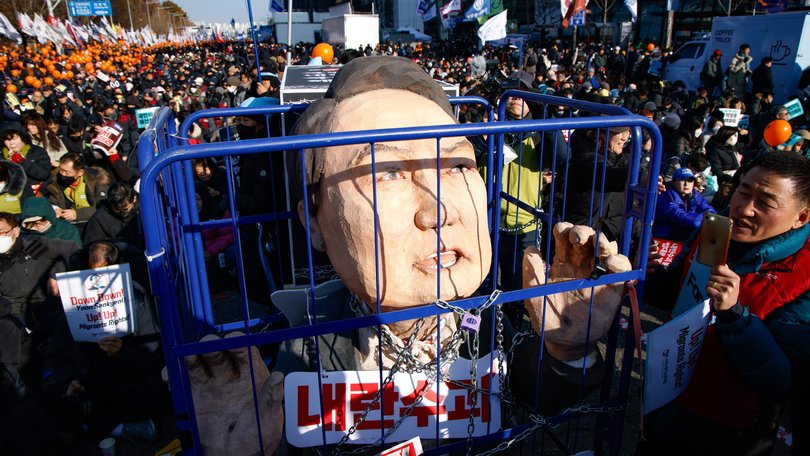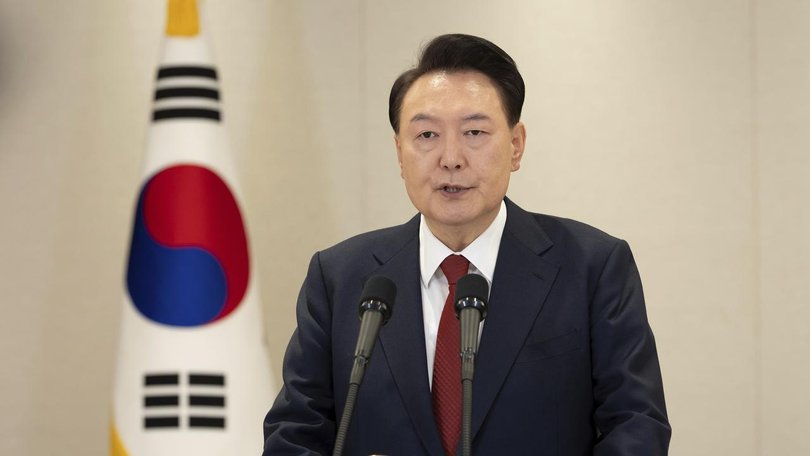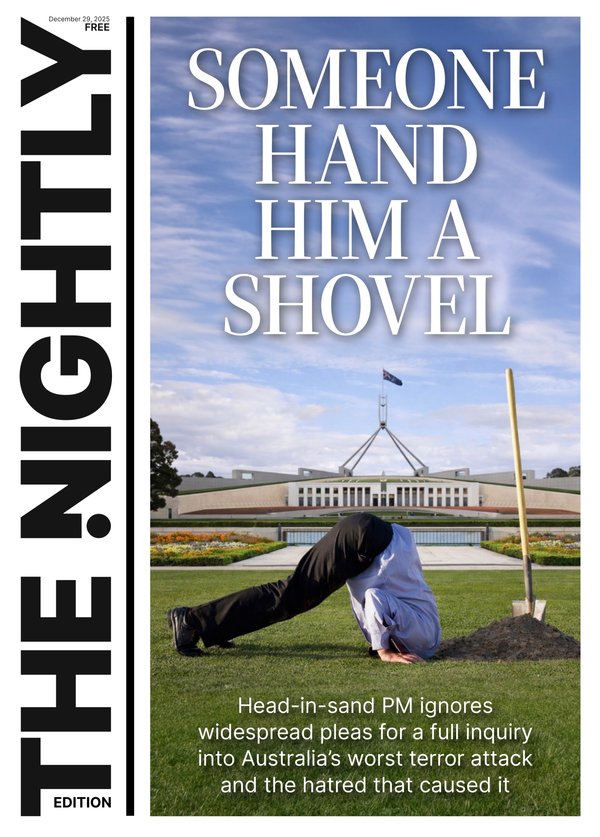Yoon Suk Yeol: South Korea impeaches president over martial law order

South Korea’s parliament has voted to impeach President Yoon Suk Yeol over his short-lived martial law decree, a historic rebuke cheered by jubilant crowds who described the outcome as another defiant moment in the nation’s resilient democratic journey.
The National Assembly on Saturday passed the motion 204-85 in a floor vote.
Mr Yoon’s presidential powers and duties will be suspended and Prime Minister Han Duck-soo, the country’s No.2 official, will take over his authority once copies of a document on the impeachment are delivered to Mr Yoon and to the Constitutional Court.
Sign up to The Nightly's newsletters.
Get the first look at the digital newspaper, curated daily stories and breaking headlines delivered to your inbox.
By continuing you agree to our Terms and Privacy Policy.The court has up to 180 days to determine whether to dismiss Mr Yoon as president or restore his powers. If he’s thrown out of office, a national election to choose his successor must be held within 60 days.
It was the second National Assembly vote on Mr Yoon’s impeachment motion. Last Saturday, Yoon survived an impeachment vote after most ruling party lawmakers boycotted the floor vote.
Some People Power Party lawmakers had since announced their intentions to vote for Mr Yoon’s impeachment in a second vote, as public protests against Mr Yoon intensified and his approval rating plummeted.
National Assembly Speaker Woo Won Shik said Mr Yoon’s impeachment was an outcome driven by “the people’s ardent desire for democracy, courage and dedication”.
Hundreds of thousands of people gathered near the parliament roared in jubilation, waved banners and brandished colourful K-pop glow sticks, as a lead activist shouted on stage that “We have preserved the constitutional order!”

In a central Seoul plaza, another huge crowd of people supporting Mr Yoon gathered, but they grew subdued after hearing Mr Yoon had been impeached. Both rallies have largely been peaceful.
Mr Yoon issued a statement saying he would “never give up” and calling for officials to maintain stability in government functions during what he described as a “temporary” pause of his presidency.
“Holding in my heart all the criticism, encouragement, and support directed at me, I will do my best for the country until the very last moment,” he said.
Mr Yoon’s December 3 imposition of martial law, the first of its kind in more than four decades in South Korea, lasted only six hours, but has caused massive political tumult, halted diplomatic activities and rattled financial markets.
Mr Yoon was forced to lift his decree after parliament unanimously voted to overturn it.
After declaring martial law, Mr Yoon sent hundreds of troops and police officers to the parliament to try to impede its vote on the decree, before they withdrew after the parliament rejected it. No major violence occurred.
Opposition parties and many experts accuse Mr Yoon of rebellion, citing a law that categorises as rebellion the staging of a riot against established state authorities to undermine the constitution.
They also say that a president in South Korea is allowed to declare martial law only during wartime or similar emergencies and has no right to suspend parliament’s operations even under martial law.
The impeachment motion alleged that Mr Yoon “committed rebellion that hurts peace in the Republic of Korea by staging a series of riots”.
It said Mr Yoon’s mobilisation of military and police forces threatened the National Assembly and the public and that his martial law decree was aimed at disturbing the Constitution.
In a fiery speech on Thursday, Mr Yoon had rejected the rebellion charges, calling his order an act of governance.
The conservative Mr Yoon said he aimed to issue a warning to the main liberal opposition Democratic Party, calling it “a monster” and “anti-state forces” that he argued has flexed its legislative muscle to impeach top officials and undermine the government’s budget bill for next year.
He claimed the deployment of troops was meant to maintain order, rather than disrupt it.
Democratic Party leader Lee Jae-myung called Mr Yoon’s speech a “mad declaration of war” against his own people.
